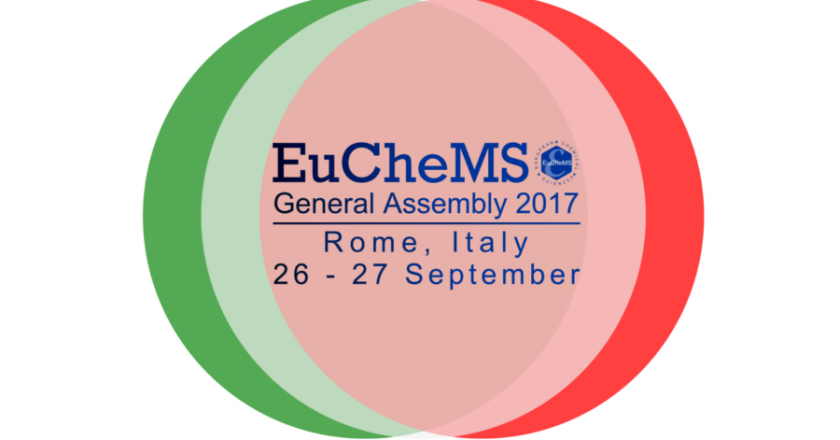Deadline: 28 September 2017
Website: https://ec.europa.eu/
FET Innovation Launchpad
Deadline: 27 September 2017
Website: http://ec.europa.eu/
EFSA Call for Proposals for Partnering Grants
Deadlines: 15 September 2017
Website: http://www.efsa.europa.eu/
Public Consultation to Support the Evaluation of the European Environment Agency and its European Environment Information and Observation Network
The European Environment Agency (EEA) is an agency of the European Union, which relies on a network of several hundred organisations across EU member States and other member and co-operating countries, the European Environment Information and Observation Network (EIONET). The objective of the EEA and EIONET, as set out in the founding regulation, is to provide the Community and the Member States with objective, reliable and comparable information at European level.
The findings of the evaluation will be used to assess how well the Agency is performing and, in particular, to assess how far the core missions of the EEA and EIONET match current policy demands, some 26 years after the founding of the Agency.
Deadline: 23 October 2017
Website: https://ec.europa.eu/
Public Consultation on Aluminium in Toys
The European Commission and its Scientific Committee on Health, Environmental and Emerging Risks (SCHEER) have launched a public consultation on the preliminary Opinion Tolerable intake of aluminium with regards to adapting the migration limits for aluminium in toys. The Commission has requested SCHEER to review the currently available data on the toxicity of aluminium, taking into account the acceptable levels established by the European Food Safety Authority (EFSA) in 2008 and by the Joint FAO/WHO Expert Committee on Food Additives (JECFA) in 2011. The preliminary Opinion presents recommendation for a tolerable intake level for aluminium based on most recent data, including exposure to aluminium from sources other than toys.
Deadline: 10 September 2017
Website: https://ec.europa.eu/
Public Consultation of the Draft Opinion “Reflection on Interpretation of Some Aspects Related to Genotoxicity Assessments”
In line with the European Food Safety Authority (EFSA) policy on openness and transparency and in order for EFSA to receive comments from the scientific community and stakeholders, EFSA has launched public consultations on the draft document “Reflection on Interpretation of Some Aspects Related to Genotoxicity Assessments”.
Deadline: 6 September 2017
Website: http://www.efsa.europa.eu/
Public Consultation on Draft Bisphenol A Hazard Assessment Protocol
The European Food Safety Authority (EFSA) Unit on Food Ingredients and Packaging has launched an open consultation on the draft Bisphenol A (BPA) hazard assessment protocol. This protocol details a priori the strategy and methodology for data collection, study inclusion, evidence appraisal and integration that will be applied in the future EFSA’s re-evaluation of BPA hazard identification and characterisation.
Deadline: 3 September 2017
Website: http://www.efsa.europa.eu/en/consultations/call/170630
Roadmap: Fitness check of the EU Ambient Air Quality Directives
Air quality has improved across Europe over the past decades, as emissions of many pollutants were curbed successfully. Nevertheless, significant compliance gaps for some key pollutants prevail – most noteworthy exceedances are for particulate matter, nitrogen dioxide and to a certain extent the ozone target values. This fitness check will look at the performance of the two complementary EU Ambient Air Quality (AAQ) Directives (Directives 2008/50/EC and 2004/107/EC).
Website: https://ec.europa.eu/
RISE – Bridging R&I Sectors in Europe and Worldwide
80 successful consortia have been selected under the 2017 Research and Innovation Staff Exchange (RISE) call for proposals, which is part of the Marie Skłodowska-Curie Actions. The RISE programme promotes cross-border and cross-sector collaboration through sharing knowledge and ideas from research to market and vice versa within Europe and beyond. With an overall budget of EUR 80 million, 811 participating organisations (including 113 SMEs and 227 organisations from third countries) involved in research and innovation activities will receive funding for 7,480 staff exchanges in all scientific domains. Researchers at doctoral level, post-doctoral fellows as well as technicians, managerial and administrative staff are involved in the exchanges.
Source: http://ec.europa.eu/
Modernisation of Higher Education in Europe: Academic Staff – 2017
Eurydice has just released its latest publication “Modernisation of Higher Education in Europe: Academic Staff – 2017”. This report explores the current realities for academic staff within the changing higher education landscape in Europe. It focuses on the qualification requirements for academic staff, the recruitment process, employment and working conditions in academia, the impact of external quality assurance, and top-level strategies for internationalisation. It also includes national diagrams showing key characteristics of academic staff categories. The report is based mainly on qualitative data gathered by the Eurydice Network, covering higher education systems in 35 countries.
Source: https://eacea.ec.europa.eu/
New Catalogue of Nanomaterials Used in Cosmetics is Now Online
The European Commission has recently published a catalogue collecting information received from operators (e.g. manufacturers, importers, etc.) on nanomaterials present in cosmetic products. This includes nanomaterials used as colourants, preservatives and UV-filters. The catalogue indicates the categories of cosmetic products and foreseeable exposure conditions. In the EU, operators must notify the cosmetic products notification portal (CPNP) of cosmetic products and whether they contain nanomaterials. According to the Commission, the catalogue will be updated regularly.
Source: http://ec.europa.eu/
New Report on Air Pollution
The annual European Union emission inventory report 1990-2015 under the The United Nations Economic Commission for Europe (UNECE) Convention on Long-range Transboundary Air Pollution (LRTAP) shows that NH3 emissions fell by 23 % between 1990 and 2015, but increased in the EU-28 between 2014 and 2015 by 1.8 %. The other main pollutants covered by the LRTAP Convention have dropped considerably since 1990, including the three air pollutants primarily responsible for the formation of ground-level ozone (O3). Carbon monoxide (CO), non-methane volatile organic compounds (NMVOCs) and nitrogen oxides (NOx) were reduced by 68%, 61 % and 56 % respectively. Around 94 % of ammonia emissions in Europe stem from agriculture, mainly from activities such as manure storage, slurry spreading and the use of inorganic nitrogen fertilizers. Ammonia contributes to eutrophication — an oversupply of nitrogen — and acidification of ecosystems. It also forms particulate matter in the atmosphere which has adverse effects on human health.
Source: https://www.eea.europa.eu/
International Research Cooperation on the Atlantic Ocean
The EU, Brazil, and South Africa have recently signed in Lisbon the Belém Statement on Atlantic Research and Innovation Cooperation. Recognising that Oceans play a key role in developing national and regional economies, in achieving the Sustainable Development Goals, and addressing climate change, the parties state in this document their commitment towards further collaborative scientific cooperation regarding the Atlantic Ocean, and towards a sustainable cooperation on marine science, research and innovation.
Source: https://ec.europa.eu/
EU Action to Combat Marine Litter
The European Parliament has recently published the outcomes of the workshop EU Action to Combat Marine Litter. This report summarises four presentations by experts and discussions which took place at this workshop held on 3 May 2017 in the European Parliament. The aim was to provide background information to the Environment, Public Health and Food Safety (ENVI) Committee ’s Members and contribute to their understanding of the need to tackle marine litter and the challenges involved, with the Circular Economy Action Plan and Plastics Strategy being recognised as policy windows in addressing this form of pollution.
Source: http://www.europarl.europa.eu/
Organic Food: New Rules for EU Label Agreed Between Parliament and Council
New rules to increase consumer trust in organic products and promote growth of this market were informally agreed between European Parliament and Council of the EU negotiators. Among other, the new rules include strict, risk-based controls along the supply chain; imports should comply with EU standards; farmers will be obliged to apply precautionary measures to avoid pesticide contamination. The agreed text now needs to be approved by the European Parliament Agriculture Committee, the Parliament plenary and the Council before it can enter into force. Chemistry plays a fundamental role in defining and controlling thresholds of contaminants in organic food.
Source: http://www.europarl.europa.eu
Open Access to JRC Research Infrastructures
As early as December 2017, researchers will be able to use the European Commission Joint Research Centre (JRC) research facilities located in Ispra (Italy), and thereafter in Geel (Belgium), Karlsruhe (Germany) and Petten (Netherlands), thus helping to maximise the benefits of these world-class infrastructures and laboratories. Past successful cooperation with universities, research institutes and SMEs has shown that there is big interest in using JRC facilities. With this initiative, the JRC aims to spread scientific knowledge, boost competitiveness and help to bridge the gap between research and industry. The results will also feed into JRC’s mission to support EU policymaking. The calls for access to the first three laboratories are available on the dedicated portal.
Source: https://ec.europa.eu/
Council Agrees its Position for the 2018 EU Budget
Earlier in July the EU ambassadors agreed the Council’s position on the 2018 EU draft budget, ahead of the negotiations with the European Parliament starting in October. The Council’s position for 2018 amounts to €158.9 billion in commitments and €144.4 billion in payments, up by 0.6% and 7.4% respectively compared to the 2017 EU budget. Payments increase significantly because the implementation of the 2014-2020 programmes is expected to reach “cruising speed” following the initial start-up period. EU’s research and innovation programme Horizon 2020 would count with €10.6 billion in commitments and €10.8 billion in payments, which is an increase by 2.6% and 5.8% respectively compared to the 2017 EU budget. Regarding Erasmus+, the proposal foresees €2.3 billion in commitments, an increase of 9.5%, and €2.1 billion in payments an increase of 13.1%.
Source: http://www.consilium.europa.eu/
Acrylamide: Vote in Favour of Commission’s Proposal to Reduce Presence in Food
Member States´ representatives voted in favour of European Commission’s proposal to reduce the presence of acrylamide in food. Once implemented, the new regulation will require that food business operators (FBOs) apply mandatory measures to reduce the presence of acrylamide, proportionate to the size and nature of their establishment.
The agreed text will now be sent to the Council and the European Parliament. The entry into force could be foreseen spring 2018. The Commission is also planning to initiate discussions on additional measures, such as setting maximum levels of acrylamide in certain foods without delay once this Regulation is adopted. Acrylamide is a carcinogenic substance that forms from naturally present free asparagine (amino-acid) and sugars during high temperature processing, such as frying, roasting and baking, particularly in potato-based products, cereal-based products, coffee and coffee substitutes. EuCheMS has submitted input to the European Commission on this topic.
Source: http://europa.eu/
ERC Plan for 2018: Nearly €2 Billion Investment in Top Researchers in Europe
Earlier this month, the European Research Council (ERC) announced its 2018 grant competitions with a total budget of around €1.86 billion, most of which earmarked for early- to mid-career researchers. In addition, the ERC is reintroducing Synergy Grants, the funding scheme for groups of two to four scientists who jointly address ambitious research problems.
The Work Programme includes all the well-known and established ERC funding schemes: Starting, Consolidator and Advanced Grants, as well as Proof of Concept Grants for ERC grantees who wish to explore the innovation potential of their research results. What is new is the Synergy Grants scheme. Building on the experience of the 2012 and 2013 pilot competitions, the ERC Scientific Council decided to reintroduce Synergy Grants for groups of two to four excellent principal investigators. The grants may be awarded for up to €10 million for 6 years. The ultimate goal of the scheme is to give support to close collaborative interactions that will enable transformative research, cross-fertilizing disciplines and capable of yielding ground-breaking scientific results.
The first 2018 grant competitions are already open, the other competitions will follow, according to the indicative calendar.
EuCheMS Publishes Conclusions from Glyphosate Debate
The conclusions of the workshop Glyphosate: Harmless Tool or Sneaky Poison? are now available online. Among other, the conclusions call for more research regarding maximum daily intake of glyphosate, to develop standard methods for reliable measurements, or to increase transparency through the funding of dossiers submitted to ECHA/EFSA. The conclusions and other materials from this event can be found online at http://www.euchems.eu/?p=8910. This workshop was co-organised by MEP Pavel Poc, EuCheMS and the ECTN earlier this year at the European Parliament.
Source: http://www.euchems.eu/glyphosate-workshop-conclusions/
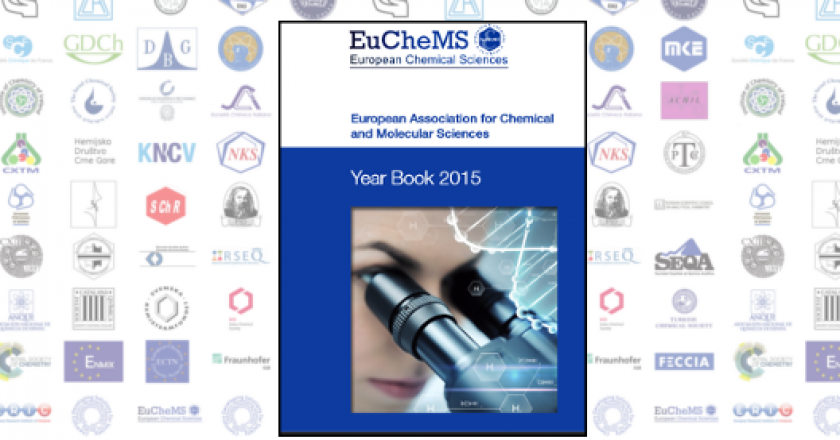
EuCheMS Year Book 2016
The 2016 edition of EuCheMS Year Book is online here.
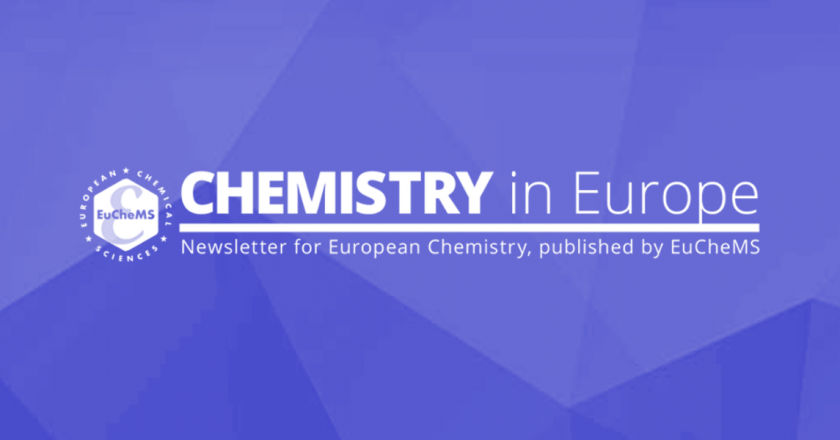
Chemistry in Europe
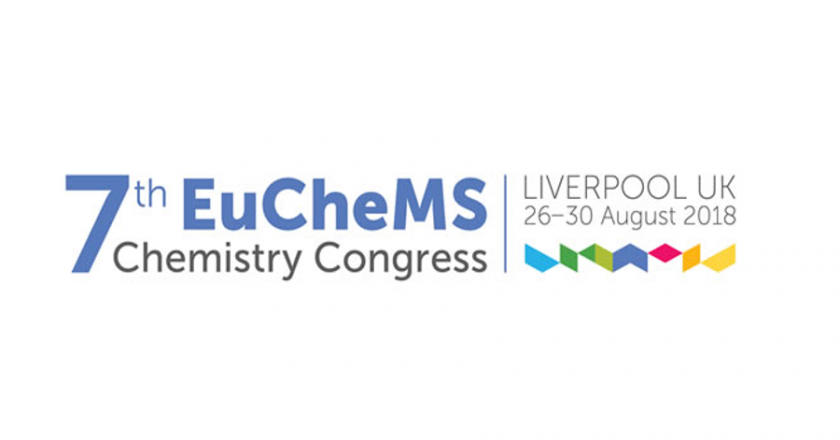
7th EuCheMS Chemistry Congress
7th EuCheMS Chemistry Congress
26 – 30 August 2018
Liverpool, UK
Website: https://www.euchems2018.org/
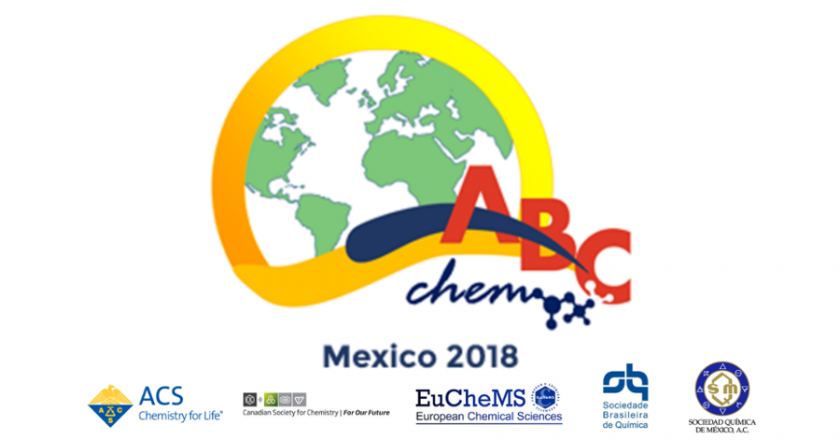
ABCChem announcement
Atlantic Basin Conference on Chemistry
23 – 26 January 2018
Cancún, Mexico
Website: http://abcchem.org/
